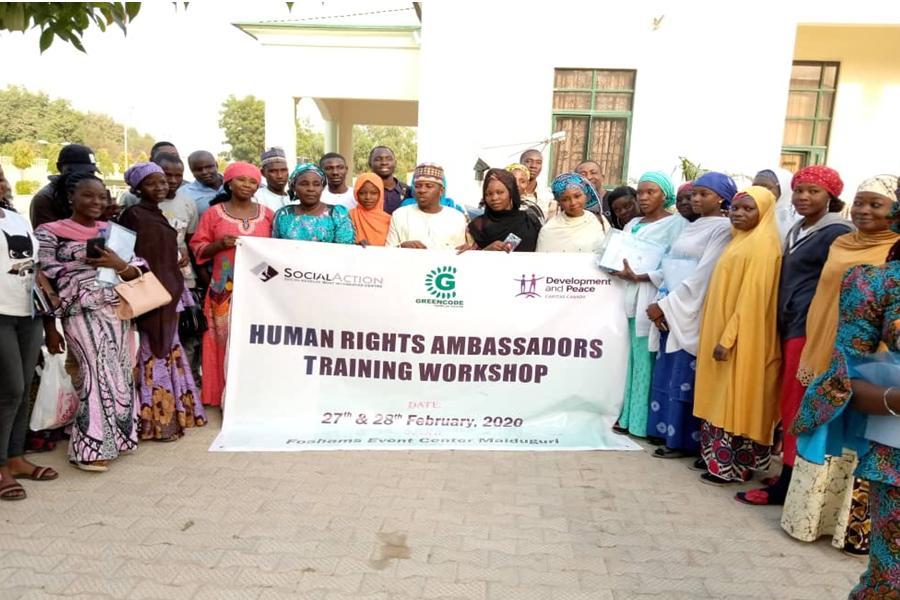
As governments and communities struggle to contain the COVID-19 pandemic with stringent measures to curb the spread and protect their citizens against the deadly virus, there is need to protect the human rights and livelihoods of vulnerable populations in Nigeria.Already, there are reports of violations of human rights and killings by the police and soldiers that are trying to enforce government ordered movement restrictions across Nigeria.In the bid to implement lockdown order and movement restrictions, law enforcement agents have violently attacked citizens going out to purchase essential food items. In northeast Nigeria, people displaced by the Boko Haram conflict are particularly vulnerable to abuses. That is why Social Action is working with women in IDP camps and host communities to monitor rights violations.
The women, part of Human Rights Ambassadors selected by Social Action, had received training weeks before the Nigerian government announced restrictions to contain the spread of COVID- 19. In collaboration with Amnesty International Nigeria, Social Action organized as a training workshop for members of displaced communities, including those in formal and informal IDP camps on human rights protection and monitoring. The training which was conceived as part of an ongoing effort at reducing suffering among displaced people, aimed at supporting community resilience through capacity building and sensitization on rights protection. The two days training program held in Maiduguri in February 2020 and was designed to provide the Human Rights Ambassadors with the requisite knowledge, skills, and tools to identify, monitor and report cases of human rights violations and abuses in their communities.
Social Action is working in Borno State to build local capacity toward social, economic and cultural uplifting of people through programs that promote human dignity, human rights and livelihoods.
Training in session
Over 30 participants, most of whom are women, were majorly women drawn from among displaced communities. Trainees were provided with real-life or practical skills and knowledge to help them function as human rights ambassadors in their various communities and IDP camps. The ambassadors will sensitize members of their communities on the need to report cases of violation and abuses they or any other persons in their community suffers while advocating for redress or reparation for the victims.
Isaac stressed the need for beneficiaries of the training to see themselves the peoples’ ambassadors in promoting the dignity of their people and community. He concluded by urging the participants to be steadfast and diligent in their responsibility as strive to make the society a safe place for all.


